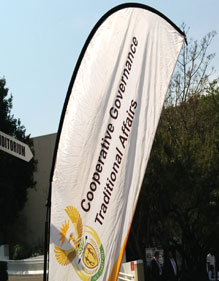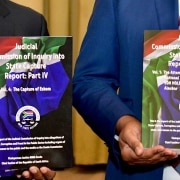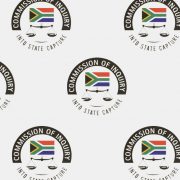|
Getting your Trinity Audio player ready...
|
 The second presidential local government summit (PLGS) promised action in transforming the performance of municipalities from mediocre, in many cases, to excellent, and ensuring that efficient municipalities remain that way.
The second presidential local government summit (PLGS) promised action in transforming the performance of municipalities from mediocre, in many cases, to excellent, and ensuring that efficient municipalities remain that way.
Ministers, premiers, mayors, executive mayors, municipal managers, speakers, chief whips, technical officers, traditional leaders, and other senior local government officials convened in Midrand on 18 September to reaffirm their primary function – that of serving the people of South Africa. The first PLGS was held at Khayelitsha in Cape Town in October 2009.
“The aim of this summit is to go further than the last meeting and to develop a focused action plan, to strengthen local government by getting the basics right,” said keynote speaker President Jacob Zuma.
The proposed action plan in indeed titled Back to Basics, and it centres on five principles:
- Putting people first and engaging with communities
- Delivering basic services
- Good governance
- Sound financial management
- Building capabilities
Download and read the statement of intent.
More people getting basic services, but protests increase
Zuma noted that the country’s Constitution enshrines certain fundamental socio-economic rights, such as the rights to dignity, water, sanitation, roads and housing, amongst other basic needs.
He said that results of Statistics South Africa’s latest non-financial census, released on 2 September, confirmed the findings of the 2011 census that there was an increase in the provision of these basic services. The non-financial census measures selected aspects of municipalities’ service delivery. It showed that the largest service provision increase from 2012 to 2013 was in sewerage and sanitation (6.2%), followed by solid waste management (5.1%), electricity (2.3%), and water (3.3%).
However, the rate of service delivery protests has also increased over the years. Data-gathering service Municipal IQ, which monitors all of South Africa’s 278 municipalities, said in a statement released on 4 September that the number of protests in 2014 may set a new record – and not one for local government to be proud of. Since the beginning of the year to the statement date there have been 134 major service delivery protests – slightly more than one every other day. Of these, four out of five have featured violence of some form.
Gauteng registered the highest percentage of protests (24%), followed by the Eastern Cape and KwaZulu-Natal (17% each). Given the small increase in the provision of electricity and water noted in the non-financial census, it is not surprising that these two services are often the reason for protests.
“Many of the recent, winter protests … dealt with electricity connections,” said Municipal IQ’s Karen Heese in the statement. While demand for electricity may decline now that the weather is kinder, she added, the demand for water is likely to accelerate accordingly. “Neither of these concerns are likely to be quickly resolved, notwithstanding gradual gains suggested in Stats SA data. This means there is likely to be a continuation in the high rate of protests witnessed so far this year.”
But Zuma attributed the protests to mere “impatience”, saying that it’s not a matter of local government not doing its job, but rather that local government is not working fast enough. “We have policies and plans which are known,” he stated, “and people see changes happening, but not to them – they become impatient, they want services now. So they protest in order to quicken the process.”
Zuma also suggested that some countries don’t even have such plans. “Indeed it’s true – some countries, once freedom was there, it was enough. Thereafter you see to yourself. They don’t worry whether you have a road or a house – but this country has a programme to give, free of charge, houses to poor people – that’s where the difference comes. We have a plan and we do give.”
Addressing the shortcomings
Minister of co-operative governance and traditional affairs (Cogta), Pravin Gordhan, known for not mincing his words, spoke out strongly against poorly performing municipalities.
“There are too many municipalities that don’t do basic things in sound financial management on an everyday basis like keeping records of all your transactions, making sure you’ve got proof of what you spend money on, or being able to prepare an annual financial statement. Three-quarters of our municipalities rely on consultants … it’s wastage of money – we employ CFOs and financial staff to do this work, so they must do it.”
Gordhan also pointed out that there were too many officials who did not possess the right qualifications and skills. “We’re going to take a very harsh view of this in the coming weeks,” he warned. “Both provincial and municipal leadership will soon start receiving letters identifying people who have been improperly employed or don’t have the right qualifications, and you will be asked to deal with this as a matter of urgency.”
Cogta’s recent assessment of the performance of municipalities showed that a third were doing well, a third had the potential to do better, and a third were under-performing. This means that within the next year it’s possible to have two-thirds doing their job properly. The remaining third would require intensive attention, and it’s Cogta’s job, with provincial colleagues, to help municipalities to do better, said Gordhan.
“Our motto should be – no service failures,” he said, “and where there is one, we must restore services urgently.”
In terms of fighting corruption, Gordhan said that many people think that they can engage in fraudulent activities without anyone being aware of it. “Those days are gone – as a recent study in Gauteng showed, people perceive us as a corrupt lot, and corruption as a serious issue. Whether that is factually correct or not, that’s the perception, and it’s our collective responsibility to remove that perception, to make sure that procedural as well as formal and informal conduct is in line with the law.”
There must be a targeted and brisk response to corruption and fraud, he said, and a clear demonstration of political, administrative and legal will to act against perpetrators. “Breaking the law is not the right precedent to set for future generations.”
He mentioned that there would be serious consequences for corruption, fraud and maladministration, and that government’s legal experts are currently exploring possible measures that include asset forfeiture, civil claims and lifestyle audits. “Lifestyle audits will demonstrate to the public that we have nothing to hide.”
The private sector also has a role to play in raising the level of morality, ethics and integrity in its dealings, and civil society must help to create the right culture.
Gordhan spoke of the possibility of opening up procurement processes in local and other levels of government to public oversight, providing transparency and accountability in this area. “Invite members of the public to watch as we evaluate our bids, as we open tenders, as we decide who gets them,” he suggested. “That transparency is going to be important in keeping all of us honest.”
The key for all of this work is that communities must be satisfied that local government is doing all it can to satisfy their needs – which would potentially cut down on service delivery protests.
Doing their job
Two municipalities that were singled out as being especially competent in the performance of their duties – Steve Tshwete in Mpumalanga and Sarah Baartman (formerly Cacadu) in the Eastern Cape – were given the opportunity to share their success stories.
Steve Tshwete mayor Mike Masina said his municipality had developed a clear communication strategy to keep residents informed about its plans and challenges, and has developed a good working relationship with the local media. Masina writes a weekly newspaper column to residents, and the municipality also uses a radio slot to interact with them, while an SMS facility is used for urgent community announcements.
Regular internal and external meetings help to keep the lines of communication open, he said, “but our room for improvement is still very spacious”.
Sarah Baartman mayor Eunice Kekana spoke proudly of her municipality’s seven consecutive unqualified audits, and said she was now aiming for a clean audit. The Steve Tshwete municipality has achieved a clean audit every year since 2009.
Business leaders were also given their chance to speak out about the challenges posed to their operations by poor service delivery, such as power interruptions. They also offered suggestions for working more closely with local government.
Later, there was a panel discussion with, among others, deputy finance minister Mcebisi Jonas, Gauteng premier David Makhura, Johannesburg mayor Parks Tau, Cape Town mayor Patricia de Lille, and Kgosi Maubane, the chairperson of the National House of Traditional Leaders. The discussion was hosted by water and sanitation minister Nomvula Mokonyane.








